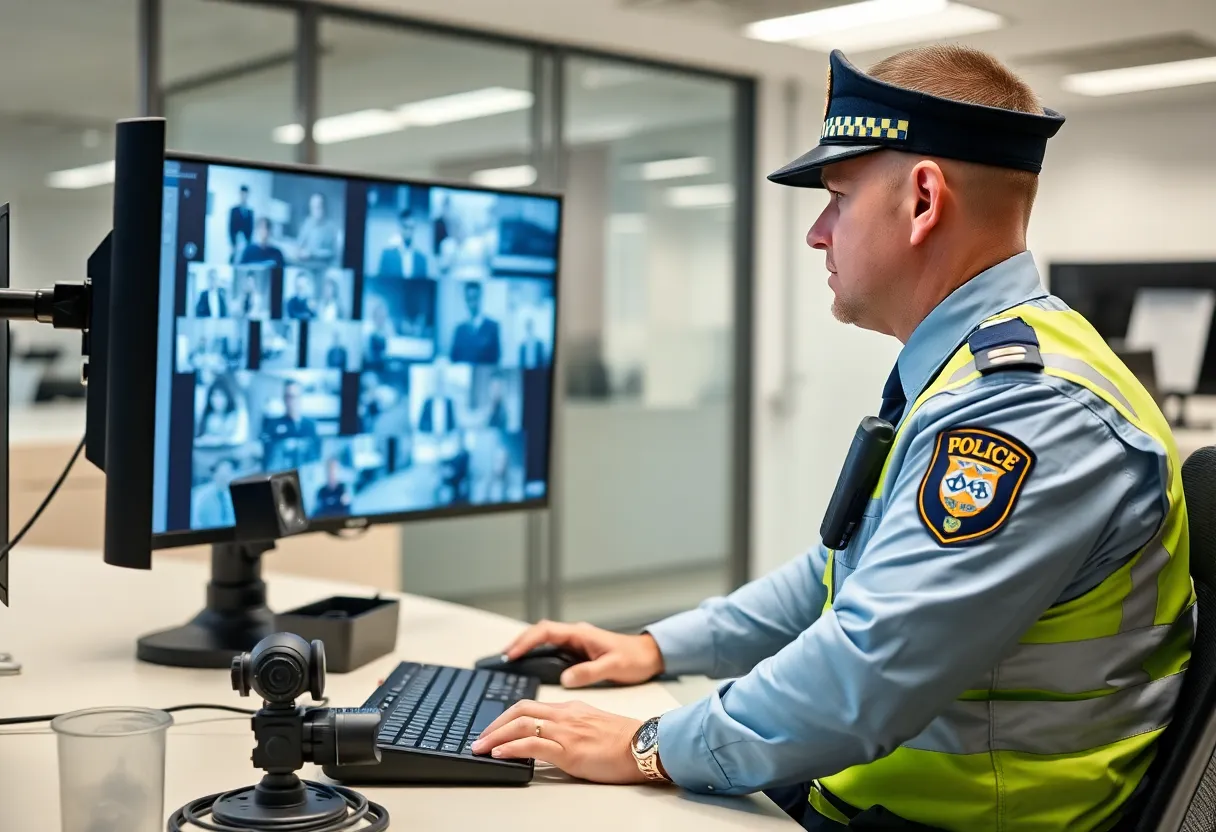News Summary
The Louisiana State Police has launched a permanent fee schedule for accessing body and dashboard camera footage, responding to rising public records requests. The new structure charges $10 for recordings up to 20 minutes, with additional fees for longer footage. This initiative comes in the wake of increased demands for transparency regarding police actions, particularly following high-profile cases of alleged excessive force. The move aims to address inconsistencies in previous fee structures and facilitate a more straightforward process for obtaining police video footage amid ongoing concerns about accountability.
Baton Rouge, Louisiana — The Louisiana State Police (LSP) has officially established a permanent fee structure for accessing video footage from body-worn and dashboard cameras. This announcement follows a year of a temporary fee schedule under an emergency declaration that was put in place due to an increase in public records requests.
The new fee schedule charges $10 for video recordings that are 20 minutes or less, with an additional 50 cents for each minute beyond that duration. Additionally, this fee applies to video footage collected by third-party security cameras. The fees are intended to help manage the growing demand for transparency in police actions, especially when concerns arise about potential misconduct by officers.
In 2024, LSP reported that there were 980 public records requests specifically for body-worn camera footage, with an average of four videos requested per case. Since 2017, troopers have utilized body cameras, though the demand for such footage has notably increased following high-profile incidents involving allegations of excessive force against officers. A notable case in 2021 highlighted the violent arrest of motorist Ronald Greene, which catalyzed public concern and scrutiny over police conduct.
In the 2019 incident leading to Greene’s death, initial reports claimed that he died as a result of a high-speed chase, yet subsequent footage revealed him pleading for mercy while being restrained. Such revelations prompted greater interest in acquiring body camera footage, exemplifying how access to these recordings can shed light on police actions.
Prior to the establishment of these permanent fees, the costs associated with requesting video footage from LSP were described as “inconsistent” throughout the state, making it challenging for citizens to understand the financial implications of their requests. Capt. Russell Graham noted that the rising number of records requests has placed a significant burden on the agency, as fulfilling these requests necessitates a thorough review process and may require redactions of sensitive information.
While the set fees are meant to offset some administrative costs associated with video processing and software, they do not fully cover the total expenses incurred by the agency. This highlights the ongoing challenges faced by law enforcement agencies in balancing transparency with operational costs.
Compounding the issue of excessive force within LSP, a report released by the U.S. Justice Department identified a pattern of systemic failures in supervision and chronic underreporting of force incidents by troopers. This report was initiated after an investigation prompted by media coverage, which further fueled calls for reform within the state police system.
The report underscored the necessity for the LSP to address unlawful conduct, recommending various reforms aimed at rectifying these systemic issues. Various incidents of excessive force have come to light, including cases where troopers have employed unnecessary violence during routine interactions, raising alarms across the community regarding the adequacy of current policing practices.
One of the recent incidents involved an officer in Baton Rouge who fired at a vehicle while pursuing it, resulting in injuries to the driver. Following an internal investigation, the officer was placed on administrative leave but was later reinstated to regular duty, which has drawn further criticism from community members advocating for police accountability.
To foster transparency, the Louisiana State Police encourages individuals with information regarding incidents involving law enforcement to report their insights through an online reporting system or hotline. As public interest in police accountability continues to grow, the permanent establishment of video footage fees may be viewed as one step towards enhancing operational accountability within the force.
Deeper Dive: News & Info About This Topic
- Louisiana Illuminator: LSP Locks in Fees for Body Camera Footage
- The New York Times: Louisiana Police and Ronald Greene Case
- CNN: Civil Rights Investigation on Louisiana State Police
- Wikipedia: Policing in the United States
- Encyclopedia Britannica: Louisiana State Police

Author: STAFF HERE NEWORLEANS WRITER
The NEW ORLEANS STAFF WRITER represents the experienced team at HERENewOrleans.com, your go-to source for actionable local news and information in New Orleans, Orleans Parish, and beyond. Specializing in "news you can use," we cover essential topics like product reviews for personal and business needs, local business directories, politics, real estate trends, neighborhood insights, and state news affecting the area—with deep expertise drawn from years of dedicated reporting and strong community input, including local press releases and business updates. We deliver top reporting on high-value events such as French Quarter Festival, New Orleans Jazz & Heritage Festival, and Essence Music Festival. Our coverage extends to key organizations like the New Orleans Chamber of Commerce and Greater New Orleans, Inc., plus leading businesses in energy, healthcare, and education that power the local economy such as Entergy, Ochsner Health, and Tulane University. As part of the broader HERE network, including HEREShreveport.com, we provide comprehensive, credible insights into Louisiana's dynamic landscape.

